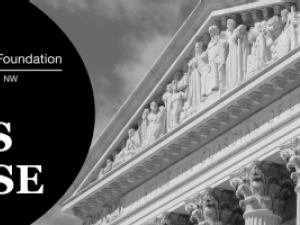Democrats won the first round against President Donald Trump over the government shutdown. This time they risk taking some of the blame by holding fast to a demand that threatens to derail any deal.
U.S. House Speaker Nancy Pelosi’s strategy during the first shutdown fight was simple: force Trump to drop his demand, open the government, then to negotiate. But now Democrats have demands of their own, and that’s where it gets messy.
Democrats want any concessions on border barrier money sought by Trump paired with limits on detentions of unauthorized immigrants already living in the U.S. It’s a trade Republicans rejected outright, setting up another confrontation that, barring a breakthrough, could trigger a partial shuttering of the government at the end of the week.
It’s not clear how far Democrats are willing to go to force the issue. Both parties have insisted over the past week that no one wants another shutdown and the top negotiators from the House and Senate were meeting Monday afternoon to try to find a way out of the impasse.
“The worst thing that can happen is a shutdown. Nobody wants that,” said Democratic Representative Lucille Roybal-Allard of California.
Shifting Blame
Republicans blamed Democrats for the stalled talks, which at the end of last week appeared headed toward an agreement. Senate Majority Leader Mitch McConnell of Kentucky ripped the Democratic demands, which they first made two weeks ago, calling it “a get out of jail free card for criminals” pushed by “the radical left.”
“Thousands of criminal aliens would simply be released into the interior of our country, both immediately and then on a rolling basis into the future,” he said on the Senate floor. “This is a poison pill that no administration, not this one, not the previous one, would or should ever accept.”
Democrats say the cap would be phased in and not require the release of criminals. They argue it would aid the cause of expelling violent criminals by shifting resources away from arrests of those undocumented immigrants who aren’t accused of serious crimes.
But that may be a tough argument to sell to voters.
Political Impact
“There’s no denying that this is much better terrain for Republicans than a debate over the border wall,” said Jim Manley, a lobbyist who was an aide to former Senate Majority Leader Harry Reid, a Nevada Democrat. “This morning, Republicans looked like they thought they were on the offensive and they’ve been firing with both barrels since. This issue once again allows the immigration hardliners to rage against an ‘invasion of illegal immigrants and rampant crime.’”
If the dispute lingers, it could split liberal and moderate wings of the party and force Democrats running in 2020 to take sides amid toxic shutdown politics. The limits on detentions are being pushed by members of the Hispanic Caucus and some newly elected House Democrats, including Representative Alexandria Ocasio-Cortez, who has called for abolishing Immigration and Customs Enforcement.
“There are some newer members, especially in the House caucus, that rail against ICE every chance they can,” Manley said.
Presidential Politics
Some Democratic senators who are running for the party’s presidential nomination, including New York’s Kirsten Gillibrand and Massachusetts’s Elizabeth Warren, have also called for scrapping or scaling back ICE, which was set up in 2003 with the task of finding and deporting unauthorized immigrants, and establish an alternative enforcement method.
Negotiators had been zeroing in on border barrier spending of between $1.3 billion and $2 billion in a concession to Trump, though the talks were at levels still well shy of the $5.7 billion he has sought. Democrats were pressing for language limiting his ability to shift unspent money elsewhere to the wall as well. But it was the Democrats’ continued push for a carrot in return—a new cap of 16,500 beds for immigrants detained in the country’s interior—that blew up the talks.
The underlying ideological fight is over the ultimate fate of 11 million people here illegally—a struggle that has defied a resolution in Congress for decades. Democrats and some Republicans have long sought to give longtime residents who haven’t committed serious crimes a path to citizenship. Many on the right don’t want them to ever get legal status, dismissing that as an amnesty that would create an incentive for a wave of unauthorized immigration.
With Congress unable to act, the Obama administration issued guidance in 2011 that its limited resources for interior enforcement should be focused on violent criminals in the country illegally.
Those initiatives were anathema to anti-immigration hardliners, who argued that they amount to a green light for anyone who doesn’t act violently to sneak into the country or continue living in it illegally. One of those hardliners is White House adviser Stephen Miller, who fought those efforts tooth and nail as an aide to former Senator Jeff Sessions and currently has the president’s ear.
Miller and congressional allies helped defeat bipartisan efforts in 2013 and 2018 to codify deportation priorities into law. Trump took up their cause in his 2016 campaign and has fought for their issues since becoming president.
Democratic negotiators sounded notes of optimism Monday that they’d be able to get a deal done.
House Appropriations Chairwoman Nita Lowey of New York said she was “cautiously optimistic” and said the bed caps remain a subject of negotiation.
“I am optimistic because we have grownups working on it,” said Patrick Leahy of Vermont, the top Senate Democratic appropriator.
And Senator Jon Tester of Montana, the top Democrat on the Homeland Security appropriations subcommittee, said the glass was “half full” and predicted reasonable agreements could be reached on detention beds and border barriers that would work for both sides.








